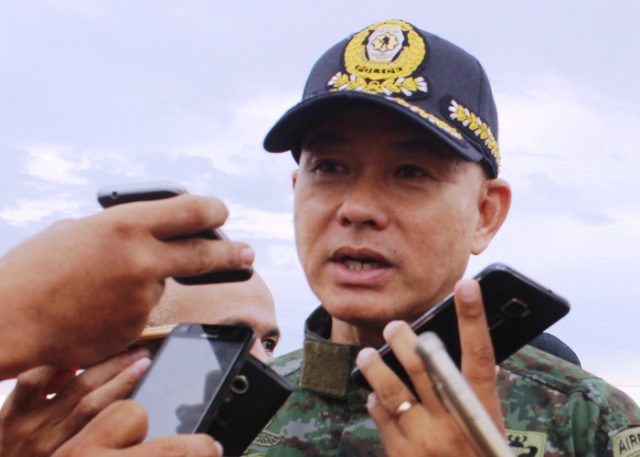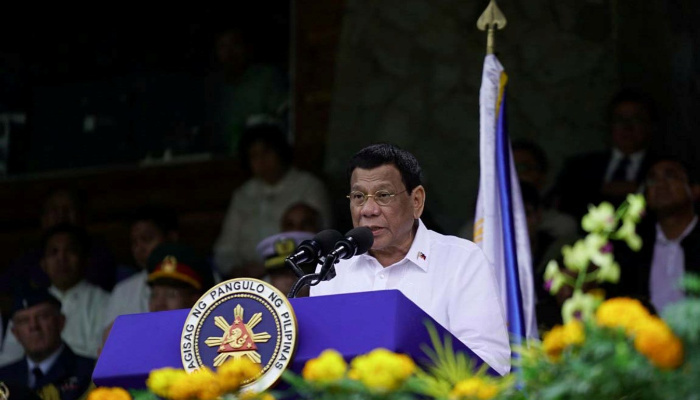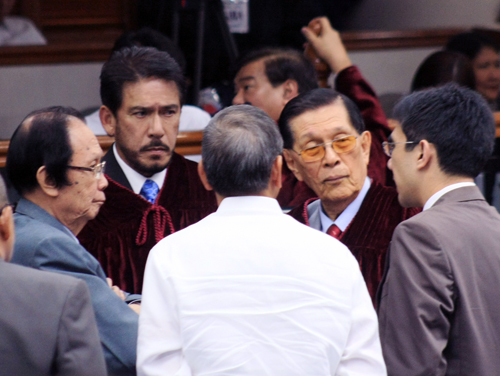
The Philippine National Police is happy to oblige President Rodrigo Duterte who threatened to order the arrest of those who will file and support an impeachment complaint against him over his pronouncements seen in favor of China following an incident off Reed Bank in the South China Sea.
“Me? Will be impeached? I will jail them all. Try to do it and I will do it. Son of a b*tch,” Duterte said.
“I am challenging you to do it. You really want to force my hand into it? Okay. You sons of b*tches, do it. Yes. File it,” Duterte added.
Director General Oscar Albayalde, chief of the PNP, said the police force will not hesitate to apprehend anyone who would attempt to file for impeachment against the chief executive.
“Of course, kung talagang pinag-utos ng Presidente at may nakita tayong violation of the law, why not?” the top cop said, referring to Duterte’s remarks.
Albayalde said the PNP would first conduct an investigation before making such arrests.
“There will be an investigation. Hindi mo naman pwedeng basta-basta kunin ‘yung tao dahil tinuro at kukunin mo. There will always be an investigation before you can make an arrest,” he said.

Malacañang eventually stated that Duterte’s comments were just an “expression of disgust” toward critics. A threat to arrest critics of the highest official of the land and the police’s unquestioning response, however, carries some weight.
What the Constitution says
Florin “Pilo” Hilbay, a former solicitor general who was involved in the Philippines’ winning arbitration case against China, countered that it is the “constitutional prerogative” of Filipinos to file an impeachment complaint.
Having them arrested, however, is not sanctioned by the Constitution.
“The President has no constitutional authority to order the arrest of anyone just (because) he wants to,” Hilbay wrote.
(1) The President has no constitutional authority to order the arrest of anyone just bec he wants to.
(2) The filing of an impeachment complaint is a constitutional prerogative of citizens & members of Congress. It can't be the basis of a crime.Every day, we sink lower & lower. https://t.co/pcGbHSpdNC
— Pilo Hilbay (@fthilbay) July 1, 2019
On arrests
If a citizen has the prerogative to file an impeachment case, that is no basis for his or her arrest.
An arrest warrant or order executed by the PNP generally comes from a municipal or regional trial court—and not from a president—once probable cause is determined against a suspect or accused.
In a criminal case, probable cause refers to a requirement that a charge has reasonable ground to proceed with further judicial inquiry or trial based on preliminary investigation and existing proof.
On impeachments
High-ranking government officials may be impeached for “culpable violation of the Constitution, treason, bribery, graft and corruption, other high crimes, or betrayal of public trust,” according to Article IX Section 2.
The Congress has the exclusive power to process and pursue an impeachment case, provided there is a verified complaint and subsequent endorsement by a congressman.

An impeachment is “a constitutional process of removing public servants from office as an assurance against abusive officials in the country,” according to a primer released by the government.
“The object of impeachment is solely to determine whether or not the official is still worthy of the trust conferred upon him/her,” it added.








